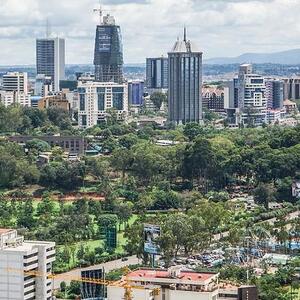Nairobi, Kenya's capital city and county, is a diverse metropolis with a bustling economy, modern infrastructure, and vibrant cultural scene. Home to major businesses, international organizations, and tourist attractions like Nairobi National Park, it faces challenges such as traffic congestion and urbanization while striving for sustainable development and growth. Capital City: Nairobi serves as the capital and largest city of Kenya, located in the south-central part of the country. It is the political, economic, cultural, and transport hub of Kenya. Population and Diversity: Nairobi is highly cosmopolitan, with a diverse population representing various ethnicities from across Kenya and expatriates from around the world. Major communities include the Kikuyu, Luo, Luhya, Somali, and others. Economy: Nairobi is a major economic center in East Africa, hosting the Nairobi Securities Exchange (NSE) and numerous multinational companies, financial institutions, and businesses. It contributes significantly to Kenya's GDP through trade, services, and industry. Infrastructure: The city has modern infrastructure, including an international airport (Jomo Kenyatta International Airport), a railway network, highways, and a well-developed public transport system. There are also hospitals, universities, and schools. Tourism: Nairobi offers various tourist attractions such as Nairobi National Park (the only national park within a capital city), Giraffe Centre, David Sheldrick Wildlife Trust (elephant orphanage), Karen Blixen Museum, and cultural centers showcasing Kenya's heritage. Culture and Arts: Nairobi has a vibrant arts and culture scene with theaters, art galleries, music venues, and events showcasing local and international talent. The city also hosts festivals celebrating music, film, literature, and food. Challenges: Nairobi faces challenges typical of major cities, including traffic congestion, informal settlements (slums), crime, and environmental i



